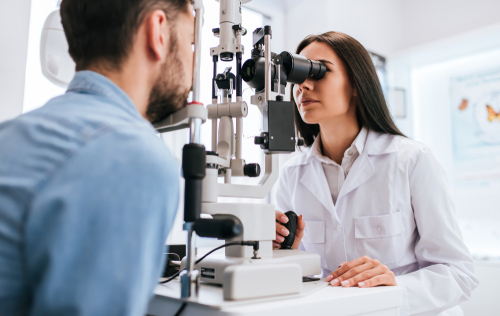
Our vision is important. It allows us to experience the world around us in a very significant way.
This is why protecting it at all costs is crucial. One of the absolute best ways to do that is by scheduling regular eye exams at Takle Eye.
A comprehensive eye exam will notify your doctor of any problems that could affect your vision. Early detection allows for early intervention.
This also makes treatment easier and positive results much more likely. Keep reading to learn why you should get a comprehensive eye exam!
What Happens During a Comprehensive Eye Exam?
A comprehensive eye exam is a series of tests and examinations performed by the doctor to glean a full understanding of the state of your vision. This includes your medical history and if your family has eye issues.
They’ll also test how your vision reacts to specific, controlled environments. They can do this by physically looking at and into your eyes.
Comprehensive eye exams can take a couple of hours to perform. How long they take depends on your various risk factors.
It also depends on the tests the doctor determines that need to be performed. Here is a list of a few of the most common ones.
Visual Acuity
Visual acuity tests give a baseline understanding of how good your vision is. During this test, you sit 20 feet away from a poster.
You may recognize this poster like the one with the single big letter on top and rows of increasingly smaller letters down the page. Each of these rows is associated with a number corresponding to the size of the letters.
Line “40” has bigger letters than the line “20”, as these letters should be visible to someone standing 40 feet away. “20/20” vision indicates normal vision because you are able to see the line “20” from twenty feet away.
Refraction
A refraction test shows a patient a series of different powered lenses to narrow down a choice for glasses or contacts. The doctor will use a large machine that is set in front of your face.
The lenses are slowly flipped through, and you will compare the options manually.
Slit Lamp Examination/Pupil Dilation
During this phase, the doctor will shine a bright light attached to a microscope into your eyes. This will allow them to view the topmost structures of your eye.
This includes the cornea, pupil, and iris. If the doctor needs to peer further into your eye, you’ll need to have your pupils dilated.
Your doctor will do this with medicated eye drops. This allows enough light in your eye to illuminate your retina.
There are other different tests that may be performed during your comprehensive eye exam.
How Often Should I Get A Comprehensive Eye Exam?
Getting a comprehensive eye exam regularly is important for maintaining good eye health. How often to get them depends on various risk factors, especially your age.
In a typical adult, you should expect to see an eye doctor once every two years. This should be more frequent as a child when your eyes are still maturing.
You should see your eye doctor more when you’re over 60, as you will be facing more threats to your sight.
Concerned that you may need a comprehensive eye exam? Schedule one at Takle Eye Group in Griffin, GA with one of our fantastic ophthalmologists!




